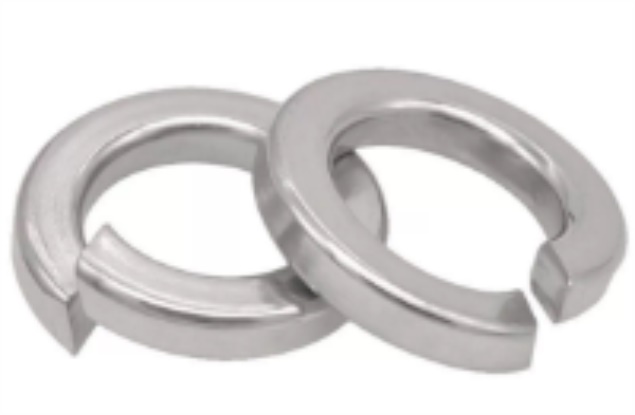Comparing Lock Nuts and Lock Washers for Effective Fastening Solutions in Engineering
Lock Nut vs. Lock Washer Understanding Their Roles in Fastening
In the world of mechanical engineering and construction, the importance of fasteners cannot be overstated. Fasteners like bolts, nuts, and washers are fundamental in connecting components securely. Among the array of fastening solutions available, lock nuts and lock washers serve as critical elements in preventing loosening due to vibration and other forces. While they are often mentioned interchangeably, these two components operate differently and are used in various applications. This article explores the distinctions, advantages, and appropriate uses of lock nuts and lock washers, providing a comprehensive understanding of both fastening solutions.
What is a Lock Nut?
A lock nut is a type of nut designed to resist loosening under vibration and torque. Typically made from various materials such as steel, stainless steel, or nylon, lock nuts come in different designs, including nylon insert, serrated, and prevailing torque styles. The most common type is the nylon-insert lock nut (commonly referred to as a nylock nut), which features a ring of nylon at its top. This inserts tightly onto the bolt threads, creating resistance against movement.
Advantages of Lock Nuts
Lock nuts offer several benefits in mechanical applications
1. Vibration Resistance One of the primary reasons to use lock nuts is their ability to withstand vibrations, common in many industrial settings. The nylon insert or serrated design grips the bolt threads, helping to keep the assembly tight.
2. Reusability Many lock nuts, especially those made from high-quality materials, can be reused multiple times if they are not deformed during installation or removal, making them cost-effective.
3. Easy Installation Lock nuts can be installed using standard tools, making them convenient for assembly lines or on-site construction applications.
What is a Lock Washer?
Lock washers, on the other hand, are thin, circular pieces of metal designed to provide a locking mechanism when placed under a nut or bolt head. Their main function is to create resistance against loosening that may result from vibration or thermal expansion. There are several types of lock washers, including split lock washers, tooth lock washers, and serrated lock washers, each designed for different applications.
Advantages of Lock Washers
Lock washers serve essential functions that complement those of lock nuts
lock nut vs lock washer factory

1. Improved Load Distribution Lock washers help distribute the load more evenly across a wider surface, which can reduce stress on the components and prevent damage.
2. Flexibility Different types of lock washers can be selected based on the specific requirements of an application, such as operating environment and load conditions.
3. Accessibility In tight spaces where a lock nut may not fit properly, lock washers offer an alternative means to provide locking capabilities.
Comparing Lock Nuts and Lock Washers
While both lock nuts and lock washers help prevent loosening, their applications can differ significantly. Lock nuts are primarily used where space allows for their placement and are often preferred in higher torque applications due to their resistance properties. In contrast, lock washers are frequently used in conjunction with standard nuts and bolts when a bolt needs a secure fastening without the added bulk of a lock nut.
Another key distinction is their installation method. Lock nuts screw directly onto a bolt or screw, while lock washers are placed under the nut or bolt head, which can sometimes make lock washers easier to install in confined spaces.
Choosing the Right Fastening Solution
When deciding between lock nuts and lock washers, engineers and builders should consider several factors
1. Load Requirements Understanding the load dynamics of the application can help determine the appropriate fastening solution.
2. Environmental Conditions Factors like temperature, humidity, and exposure to corrosive elements can influence the choice of materials and designs.
3. Cost and Reusability Evaluating the costs of fasteners in the context of their application longevity can lead to more economical choices.
In conclusion, both lock nuts and lock washers play vital roles in fastening applications, offering unique advantages depending on the specific requirements of the project. By understanding their differences and applications, professionals can ensure reliable and secure assemblies in their mechanical and construction endeavors. Choosing the right fastening solution is crucial for safety, efficiency, and long-term success in any engineering project.
-
Top Choices for Plasterboard FixingNewsDec.26,2024
-
The Versatility of Specialty WashersNewsDec.26,2024
-
Secure Your ProjectsNewsDec.26,2024
-
Essential Screws for Chipboard Flooring ProjectsNewsDec.26,2024
-
Choosing the Right Drywall ScrewsNewsDec.26,2024
-
Black Phosphate Screws for Superior PerformanceNewsDec.26,2024
-
The Versatile Choice of Nylon Flat Washers for Your NeedsNewsDec.18,2024










